European investors eye greener incentives
To venture further into fresh opportunities, the European Chamber of Commerce in Vietnam (EuroCham), which represents more than 1,200 businesses having strong expertise in green growth, is to host a 3-day conference and exhibition on November 28-30 in Ho Chi Minh City to create a platform to discuss, find, and apply European green solutions, technologies, and services in Vietnam.
The Green Economy Forum and Exhibition event will facilitate sustainable development by transferring technologies, funds, and knowledge from European to Vietnamese businesses. This move strongly reflects and reinforces the trend in EU investment in Vietnam and EuroCham’s vision for sustainable development.
Earlier this month, a group of businesses from Styria, the fourth-most populous state of Austria, visited Vietnam to seek investment opportunities in in green growth.
Regional Minister for Foreign Affairs Barbara Eibinger-Miedl who led the Austrian delegation said that there are ample opportunities for Austrian firms to invest in Vietnam in energy technology and environment, design and construction, as well as green technologies.
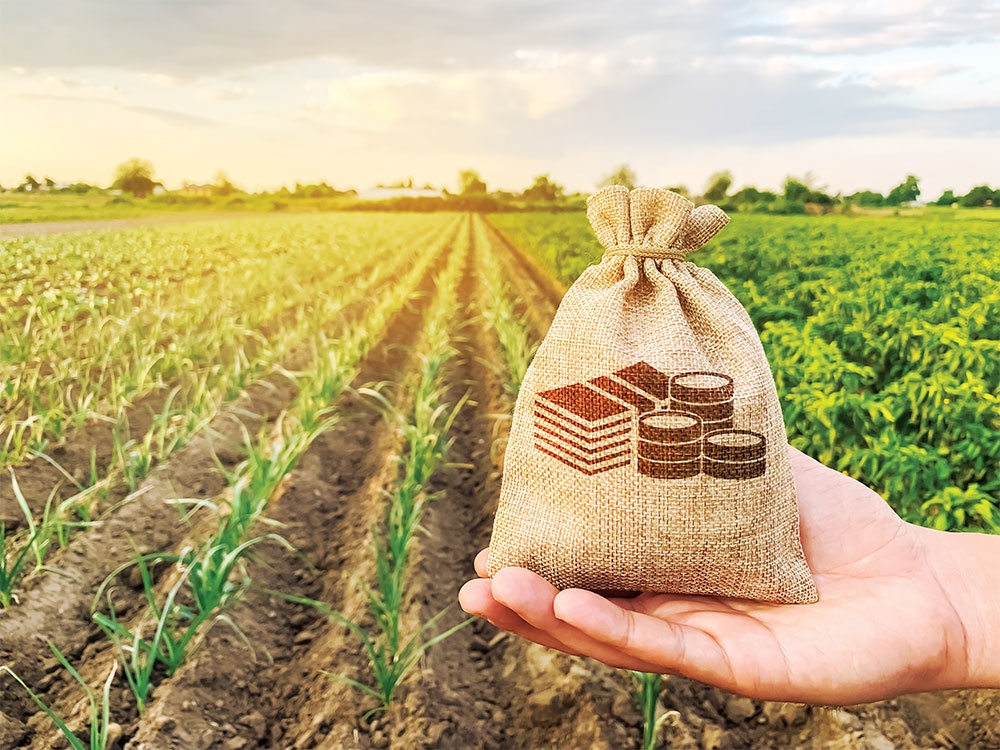 |
| European investors eye greener incentives |
Several Austrian firms are doing well in Vietnam, namely equipment manufacturer Andritz, power train system developer EVL List, and steelmaker Voestalpine.
For instance, for over 15 years, Andritz had been serving the rapidly growing market through a representative office in Hanoi until early 2016, when a full legal entity was established. Andritz is committed to the sustainable development of Vietnam’s hydropower and water resources management sectors, and has signed a number of contracts for hydropower projects in Vietnam such as the for the Pac Ma project in Lai Chau province; one for the Thuong Kontum venture in Kon Tum and Binh Dinh provinces; the Nhan Hac project in Nghe An province; and the Hoa Binh project in the province of the same name.
Austrian firms are among those from the EU growing green business and investment activities in Vietnam because the Southeast Asian nation is taking actions to implement the COP26 commitments to achieve net-zero greenhouse gas (GHG) emissions by 2050.
Like Austria, Denmark and Norway have been making similar moves. In May, Equinor, Norway’s largest energy company, opened its Hanoi office in anticipation of promising chances from energy transition here.
Denmark’s Lego has also announced a $1 billion high-quality green investment in the southern province of Binh Duong. The company aims to build its first carbon-neutral factory, which is expected to generate 4,000 jobs and produce all its energy on-site.
Alain Cany, chairman of EuroCham, told VIR, “You can see many kinds of companies taking initiatives, small or large, for going green. We have seen many cases where Vietnam’s European companies, such as Sanofi and Heineken, move towards zero carbon goals. This strategy of attracting and retaining high-quality, sustainable foreign direct investment with the end goal of a green transformation appeals to European firms looking to invest in Vietnam and conscious consumers seeking products that align with their values.”
Several high-profile European-invested projects in the country have adopted sustainable European values to meet local demand and to benefit from Vietnam’s National Green Growth Strategy, with energy, smart manufacturing, environment, and green infrastructure among the most attractive trends.
In late 2021, Vietnam approved the strategy for 2021-2030, which targets to reduce GHG emission intensity per GDP by at least 15 per cent by 2030 and at least 30 per cent by 2050, promoting sustainable consumption based on the principles of equality, inclusivity and raising resilience, as well as green development in economic sectors and industries.
To this effect, the country will focus on efficiently using natural and energy resources with advanced science and technology as the foundation, applying digital technologies and digital transformation, developing sustainable infrastructure to raise the quality of growth, bringing competitive advantages and reducing the negative impact on the environment. The government is likely to release further decrees on implementation, including investment incentives for foreign businesses.
While identifying green growth as a key factor in attracting foreign investment to Vietnam, according to the Business Climate Index (BCI) for the third quarter of 2022 released last week by EuroCham, the number of respondents who rated Vietnam’s green potential positively decreased from 44 to 32 per cent.
Global economic conditions remain unstable due to the escalating conflict in Ukraine, persistent inflationary pressures, a labour shortage worldwide, and stagnant global growth are taking their toll on the optimism amongst European business leaders in Vietnam. According to the BCI, European business stakeholders’ perception of Vietnam’s business and investment climate dropped 6.4 index points to 62.2.
Participants in the BCI recommended that Vietnam improve its legal framework (92 per cent), its infrastructure (87 per cent), and its investment incentives (86 per cent) to accelerate green development. The BCI was produced by YouGov Decision Lab, involving over 1,200 members representing virtually every sector of Vietnam’s economy.
Thue Quist Thomasen, CEO of YouGov Decision Lab, said, “By curbing inflation, improving credit ratings and continuing GDP growth, Vietnam’s story stands out as less pessimistic globally as companies plan and look forward to 2023. Sentiment remains well above the midpoint of 50, indicating a positive outlook for the future.”
| Do Thang Hai - Deputy Minister of Industry and Trade
Vietnam and the EU established diplomatic ties in 1990. Since then, bilateral relations have strengthened rapidly in both breadth and depth in the fields of politics, economy, trade, investment, development cooperation, education and sci-tech, among others. Vietnam has many advantages and is one of the top picks of the EU in its development of relations with ASEAN and East Asia. The comprehensive relationship between Vietnam and the EU over the past 30 years has resulted in achievements in trade, official development assistance, and investment. Trade cooperation is considered an important premise in promoting political ties between Vietnam and the EU based on mutual benefit. Before the EU-Vietnam Free Trade Agreement (EVFTA) was signed, the Vietnam-EU relationship was still developing, with bilateral trade continuing to grow. The EU is now the leading trade partner in Vietnam and the third-largest export market and the fifth-largest import market of the Southeast Asian nation. Tariff cuts under the EVFTA have greatly contributed to helping Vietnam increase its competitiveness and expand in the EU market while accessing high-quality goods from the EU. Regarding the bilateral investment cooperation, with strong commitments to ensuring transparency, and favourable conditions in the business climate, Vietnam has welcomed high-quality investment from the EU with projects having advanced technologies, creating added value and common benefits for businesses of the two sides. The EU is now Vietnam’s fifth-largest foreign investor, with a total registered investment of $27.6 billion. Giorgio Aliberti - Ambassador and Head European Union Delegation to Vietnam
The Green Economy Forum and Exhibition will undoubtedly be one of the major events in Vietnam this year to promote green technologies and solutions. Europe has much to show regarding technologies and solutions for greening the economy and enhancing the fight against climate change. In addition, this event underlines the joint interest of the European Union and Vietnam in proactively promoting policies that will allow our future generations to continue living in a hospitable environment. The EU is a strong advocate of a global transition towards a low-emission, resource-efficient and circular economy, whose transformative power lies in turning challenges into opportunities and paving the way for a future where both people and our planet can thrive. Natural resources are limited. Demand is constantly rising in the European Union and around the world. In a competitive environment, maximising recycling will bring benefits for us all. Our old model of “take-make-throw away” is a blind alley. We need to completely rethink our attitude toward depleting natural resources. There are many facets to this challenge. We need to build circularity into our energy and transport systems, into construction and food chains. There are major implications for how businesses can thrive in the future. A move away from the unsustainable habits of the past towards an economy that is more productive, more fulfilling, and more balanced is the mandate of the hour. Better for business, better for the living conditions of citizens and in harmony with nature. We need to deploy and use smart solutions that leverage technological, collaborative, and commercial innovative forces. Independent studies have found that changing our economy to a more circular model could bring net savings of €600 billion ($589 billion) for EU businesses by 2030. This amounts roughly to 8 per cent of their annual turnover. It could create 580,000 jobs. This clearly shows that there are economic dividends from this transformation both for society as a whole and for those businesses that will be able to innovate and take the opportunities offered by the transformation. A successful transition cannot be achieved by any single actor alone. It will require collaborative efforts of all actors in value chains. It also requires working hand-in-hand with EU and Vietnamese companies, investors, producers, service providers and customers. Participation in civil society is a necessity for success. |
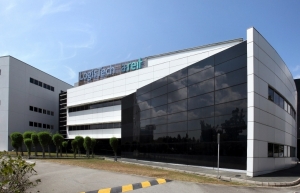 | CapitaLand secures $280 million in green loans to green out global portfolio by 2030 CapitaLand on April 17, 2020 has secured a total of SGD400 million (approximately $280 million) in two bilateral green loans to catalyse the greening out of the group’s global portfolio by 2030. |
 | Investments are flowing into proptech As a growing number of companies in the real estate industry are embracing technology to promote their sales since the pandemic, investments are flowing into proptech start-ups to capture the opportunity. |
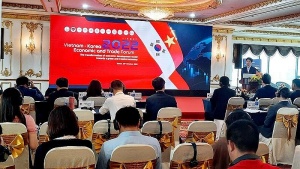 | Vietnam - Korea moves towards green and innovative model Representatives of Vietnamese and South Korean businesses attending VIKOEF 2022 will continue improving the quality of economic and trade cooperation, striving to fulfil the goal of bilateral trade turnover, and promoting the development of green economic models. |
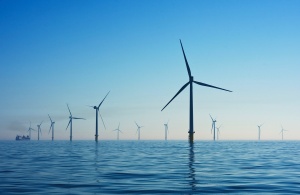 | Danish investors see potential in Vietnam's green solutions Vietnam constitutes an increasingly interesting market for Danish companies and a strategic partner for Denmark in the transition to a greener and more sustainable future, according to the Embassy of Denmark in Hanoi. |
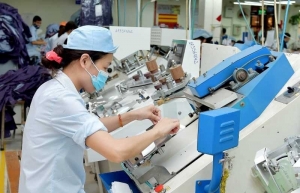 | Garment and textiles going green in push to hit turnover goals The garment and textiles industry in Vietnam is going green, with a series of companies and factories embracing eco-friendly initiatives firmly in line with global trends. |
What the stars mean:
★ Poor ★ ★ Promising ★★★ Good ★★★★ Very good ★★★★★ Exceptional
Related Contents
Latest News
More News
- SK Innovation-led consortium wins $2.3 billion LNG project in Nghe An (February 25, 2026 | 07:56)
- THACO opens $70 million manufacturing complex in Danang (February 25, 2026 | 07:54)
- Phu Quoc International Airport expansion approved to meet rising demand (February 24, 2026 | 10:00)
- Bac Giang International Logistics Centre faces land clearance barrier (February 24, 2026 | 08:00)
- Bright prospects abound in European investment (February 19, 2026 | 20:27)
- Internal strengths attest to commitment to progress (February 19, 2026 | 20:13)
- Vietnam, New Zealand seek level-up in ties (February 19, 2026 | 18:06)
- Untapped potential in relations with Indonesia (February 19, 2026 | 17:56)
- German strengths match Vietnamese aspirations (February 19, 2026 | 17:40)
- Kim Long Motor and AOJ Suzhou enter strategic partnership (February 16, 2026 | 13:27)

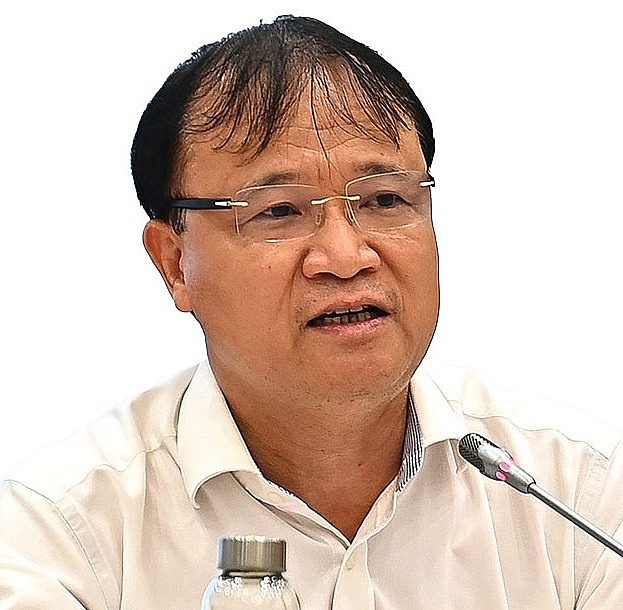
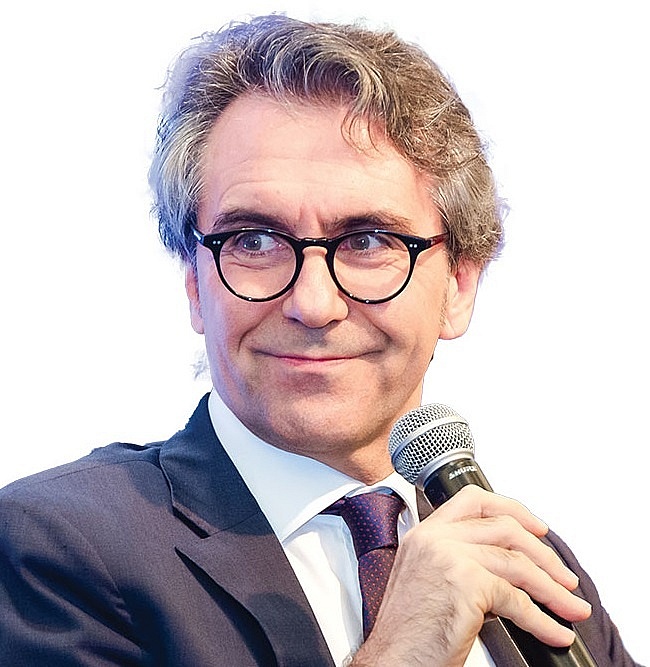
 Tag:
Tag:




















 Mobile Version
Mobile Version